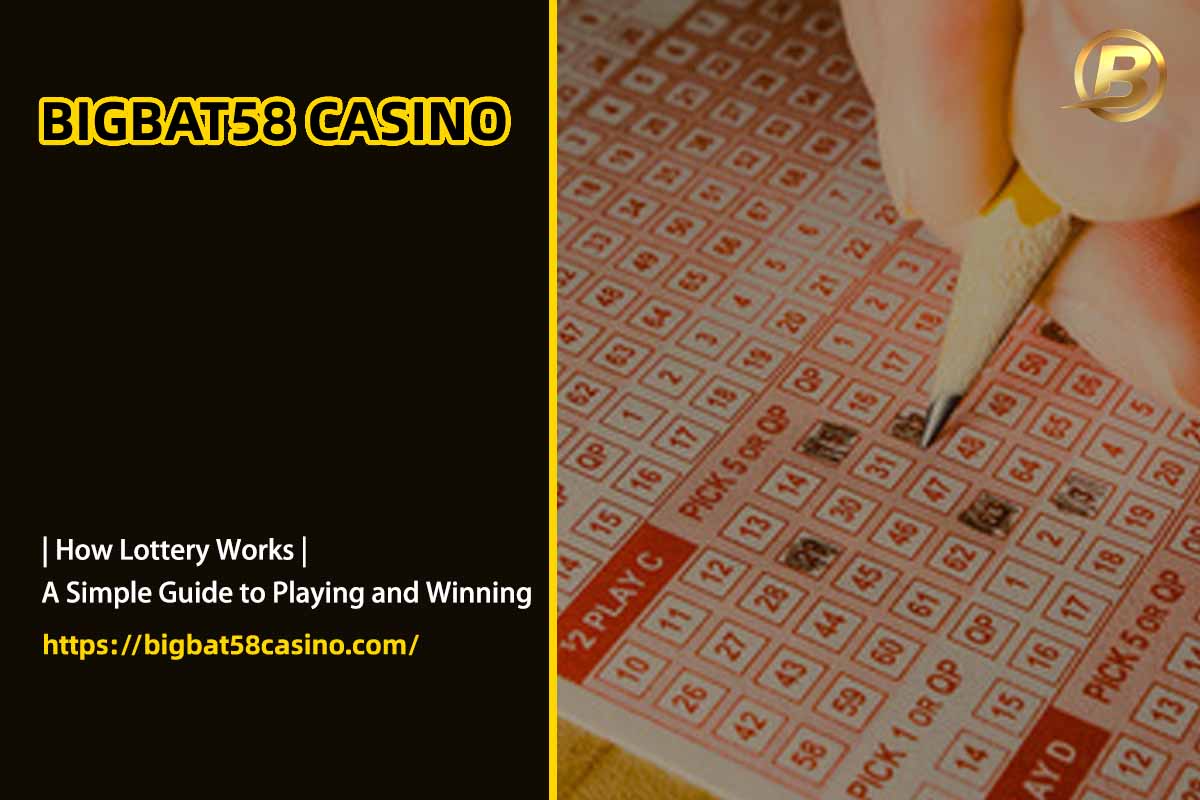A Simple Guide to How Lottery Works
How Lottery Works | Bigbat58 Lottery System | Lottery Rules
Understanding how lottery works is essential for anyone interested in participating in this popular form of gambling. Lotteries not only provide entertainment but also generate funds for essential services like education and public infrastructure. This Bigbat58 lottery system guide delves into the types of lottery games and the crucial lottery rules you need to know before you play. View Bigbat Lottery.
Read more articles:
How Lottery Works
At its core, the lottery is a form of gambling where participants buy tickets for a chance to win cash prizes. The funds collected from ticket sales are typically allocated to community services such as public schools, park maintenance and city worker pensions, showcasing how how lottery works can benefit society. Players can purchase tickets for as little as $1 or more, depending on the game.
Types of lottery games
There are various types of lottery games available, but they all share a common objective which is to buy a ticket with the hope of winning a more significant prize.
National lotteries
Countries like the U.K. have national lottery systems that include a mix of number-based games and instant-win options like scratch-offs. These systems are comparable to state lotteries in the U.S. but operate on a national scale. Each country has its own lottery rules such as the tax treatment of winnings which in the U.K. are tax-free.
State and Local Lotteries
States and local governments manage their lottery games which often consist of traditional number-drawing games and scratch-off tickets. These lotteries help fund local projects and create community benefits.
Instant Win and Scratch-Off Tickets
Instant win games including scratch-offs provide immediate results, allowing players to know if they’ve won right away. While many national and state lotteries offer these games, their prizes are usually smaller compared to the more well-known drawing games like Mega Millions.
Odds of Winning the Lottery
Understanding the odds is vital for anyone looking to play. Generally, scratch-off tickets provide better odds of winning compared to draw lotteries mainly due to their lower prize values. According to the Iowa Lottery, the chances of winning any prize with a scratch-off ticket stand at approximately 1 in 3.41.
Conversely, the odds for draw lottery tickets are significantly steeper. For example, the Powerball offers a 1 in 38.32 chance of winning a $4 prize by matching a single number. However, the odds drop drastically to 1 in 292.2 million for matching all six numbers in the jackpot. The allure of winning large prizes often captures players’ imaginations as seen with the record-setting Powerball jackpot of over $2 billion in November 2022.
The Lotto Machines
Two primary types of Lotto machines operate during lottery draws which are gravity pick and air mix. Both types are engineered using statistical analyses to ensure randomness in number combinations which is a crucial aspect of how lottery works.
Gravity Pick Machines: These machines use solid rubber balls which are mixed in a chamber by paddles spinning in opposite directions. When the operator opens a sliding door, a specific number of balls are drawn for the lottery.
Air Mix Machines: This type employs lightweight ping-pong balls that are mixed with jets of air. An operator controls the airflow to select the winning balls.
Security is paramount in the drawing process. For instance, the New York Lottery maintains duplicate sets of Lotto balls and weighs them before and after draws. Such practices enhance the integrity of the lottery and provide transparency to players, reinforcing trust in how lottery works.
Lottery Payout Options
When it comes to receiving winnings, players face a common debate. Should you choose a lump sum payment or an annuity? Each option has its pros and cons.
Annuity: This method allows winners to receive their total jackpot amount through 29 annual payments, plus an initial payout upon claiming the prize. However, taxes will apply each year.
Lump Sum: This option is attractive because taxes are paid only once. However, the amount received is typically around half of the advertised jackpot, depending on lottery rules and interest rates. For instance, a $1 billion jackpot might yield a lump sum of approximately $500 million.
Conclusion
Understanding how lottery works can enhance your experience as a player, whether you’re participating in the Bigbat lottery system or exploring local games. Familiarizing yourself with the different lottery rules and payout options will empower you to make informed choices. Remember, while the odds can be steep, the thrill of the game and the potential for life-changing winnings continue to draw players in.











